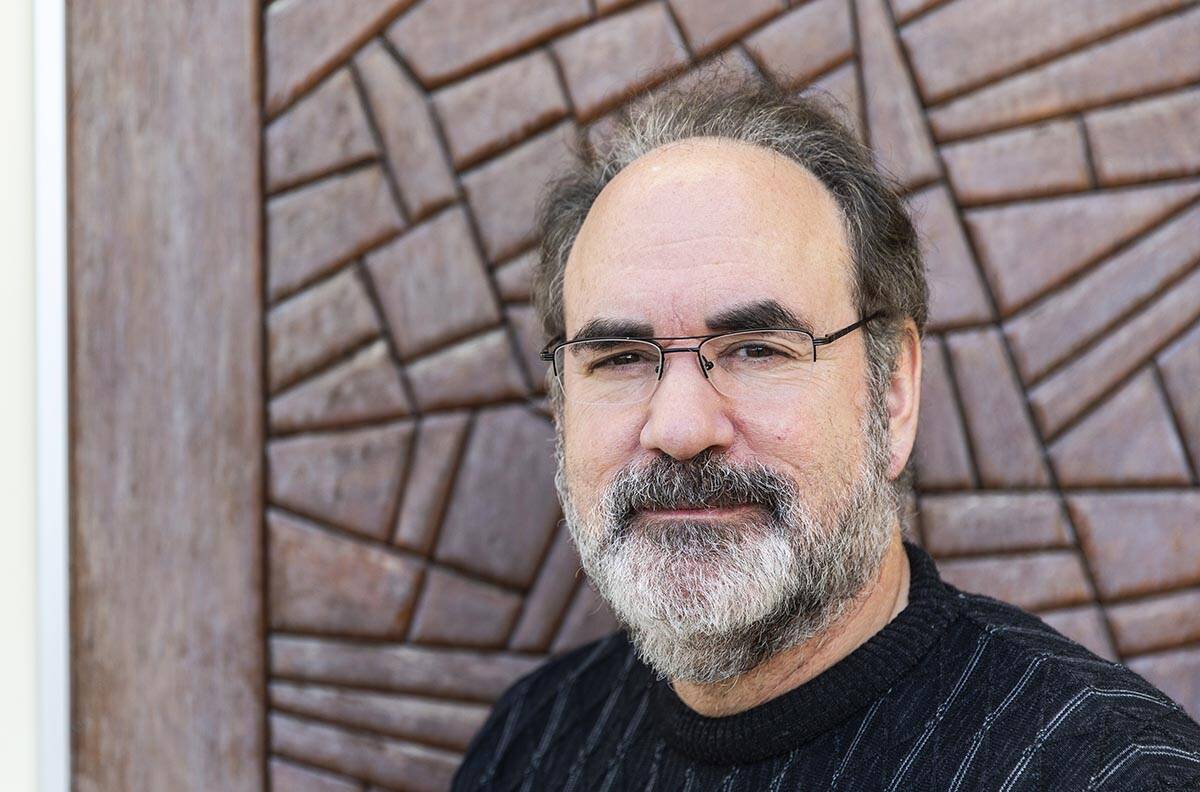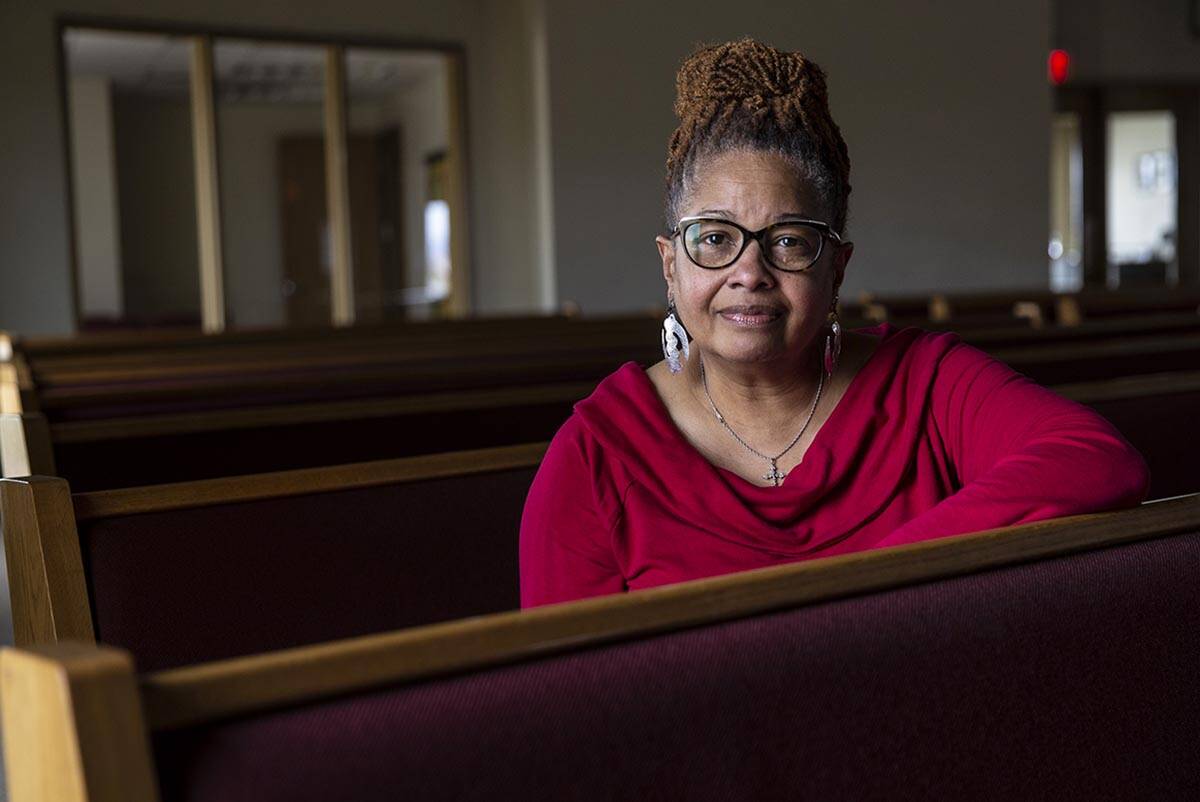Las Vegas religious leaders react to Supreme Court ruling
Local religious leaders shared mixed opinions on the Supreme Court’s ruling to overturn the landmark Roe v. Wade decision that had enshrined abortion as a constitutional right for nearly a half-century.
The court’s ruling, released Friday morning, gives states the ability to legislate abortion rights, and many states have already severely limited or outlawed it.
Bishop George Leo Thomas of the Diocese of Las Vegas released a statement in support of the court’s decision.
“The (Catholic) Church believes in the sacredness of human life, beginning at conception until natural death. Every child born and unborn has the right to life,” the statement reads.
Shortly after the decision was released, protesters gathered in front of the Supreme Court in Washington, D.C. An abortion-rights protest in downtown Las Vegas also took place Friday night.
The Church of Jesus Christ of Latter-day Saints reaffirmed its stance against abortion with an updated website Friday.
“The church’s position on this matter remains unchanged,” the site says. “As states work to enact laws related to abortion, church members may appropriately choose to participate in efforts to protect life and to preserve religious liberty.”
Other religious leaders derided the court’s decision.
According to Rabbi Sanford Akselrad of Congregation Ner Tamid in Henderson, in Judaism, a fetus is viewed as part of the woman, not a separate person, and life is believed to begin at birth.
“This ruling removes a religious choice for Jews,” he said. “Potential life is still holy and sacred, but abortion is a decision that should be made by a woman, her physician and her rabbi and religious council.”
For Akselrad and others, the Roe v. Wade decision was not about encouraging abortion but providing a right to bodily autonomy to women.
Islam holds a belief that life begins between about 40-120 days after conception, Muslim community activist Fahima Khalaf said.
“Even though Islam is viewed as backward and the most conservative religion — which is not true — every school of Islam believes in the right to abortion in some circumstances,” she said.
Some Jewish rights groups have already considered filing lawsuits against state governments based on this decision and other policy limiting abortion, claiming that banning abortions infringes on their religious freedom.
A majority of Americans — 53 percent, according to a Gallup poll from May — believe that abortion should remain legal under most or all circumstances.
In Nevada, abortion remains legal because of a 1990 referendum that was approved by nearly two-thirds of voters.
Cultural implications
The court’s decision is viewed as part of the rising tide of outwardly religious conservatives in American politics, Khalaf said.
“The law of the land is the separation of church and state,” she said. “You can’t have a small minority rule on something that impacts so many.”
For the Rev. Karen Anderson of the First African Methodist Episcopal Church in Las Vegas, it’s representative of the perversion of religion as a political tool.
“Faith has been used to manipulate the issue,” she said. “Because if you’re really pro-life, it has to extend after birth.”
She called out what she views as the hypocrisy of mostly Republican lawmakers and voters who want to limit abortion rights but do not support other methods to help people.
“You have to support resources to provide for children, expand Medicare to support the elderly, universal health care to keep people healthy,” she said. “And on top of all that, oppose the death penalty.”
Anderson linked Friday’s ruling to those released by the court Thursday, one of which rolled back a New York law limiting access to concealed carry permits for handguns.
“It begs the question, do guns have more rights and protections than I do?”
By transferring the legislative power over abortion to the states, millions of Americans will no longer be able to access abortion care.
“One of the things God has given us is free will and choice,” Anderson said. “This law says that women have been given second-class citizenship.”
It’s a movement backward from previous generations, Khalaf said.
“My daughter has less rights than I did and her grandmother did.”
Inspiring congregations
For this weekend’s services, both Akselrad and Anderson said they plan to address the Supreme Court’s rulings with their congregations. They hope to be an inspiration to the women who may feel crushed by the court’s decision.
“We must be tenacious in recovering the rights we’ve lost,” Akselrad said.
For Anderson, that means making sure that her congregation, especially young women, don’t feel despair.
“I need to make sure that women know that God made us equal,” she said. “But I’m terrified about the world we’re leaving our young people.”
Contact Nick Robertson at NRobertson@reviewjournal.com. Follow @NickRobertsonSU on Twitter.
RELATED
'This will not stop here,' Titus says after abortion ruling
Some fear rollback of LGBTQ, other rights after Roe ruling
Can I still get an abortion in Nevada? Abortion questions, answers.
Religious leaders in Las Vegas Valley react to Supreme Court ruling
In Nevada, Planned Parenthood prepares for influx of abortion patients


















